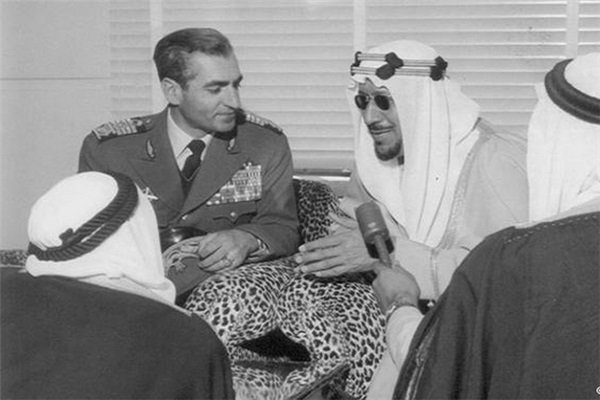Bahrain was lost due to Shah incompetence and British conspiracy

TEHRAN – August 15, 1971, is a painful day in Iranian history. On this day, Iran forever lost sovereignty over a historical part of its territory due to political ineptitude on the part of Shah Mohammad Reza Pahlavi and the British conspiracy.
The Pahlavi dynasty came to power in 1925 with a pompous nationalistic agenda to transform Iran into a leading power and establish what the patrician Shah called “the great civilization.” Yet it joined the long list of incompetent Iranian dynasties that lost sizable parts of Iranian territory.
Although almost all modern Iranian dynasties failed to protect Iran’s territorial integrity, the Pahlavi regime is distinct in one striking aspect: voluntary abandonment of parts of Iranian territory. While all previous shahs of Iran were forced to relinquish sovereignty over some parts of their kingdom due to war or crisis, Shah Mohammad Reza Pahlavi stands out as the only Iranian king who voluntarily – and happily – committed the heinous act of abjuring sovereignty over a part of his kingdom.
Before August 15, 1971, the tiny island of Bahrain was the 14th province of Iran. And it had two deputies in Iran’s national parliament. But in that year, Bahrain declared independence as a result of sham process orchestrated by Britain, which at the time was in the process of leaving the Persian Gulf but wanted to ensure that Bahrain remained away from Iran’s control.
The Pahlavi regime paved the way for giving away Bahrain, which was an integral part of Iranian territory over the course of history.In the late 1960s, the decline of the British empire began to speed up, with British officials scrambling to lay the groundwork for the post-British era. And Bahrain took a center stage in the British efforts.
Instead of confronting the British machinations in the Persian Gulf, the Shah assumed the role of a puppet whose job is to normalize the secession of Bahrain.
In an interview with the Guardian, the Shah shockingly advocated for Bahrain's independence. He told the British paper that Bahrain was running out of pearl reservoirs and that it was not of importance for Iran.
Of course, the Shah could not simply give away Bahrain. He had to do so in a democratic process. So, he acquiesced to a referendum organized by the United Nations. This is while the Shah did not believe in democracy. If he was really democratic, then he would have refrained from holding sham elections inside Iran itself.
Shah officials competed with each other in justifying the separation of Bahrain, with the Shah’s prime minister shamelessly likening Bahrain to an Iranian girl whose father decided to arrange her marriage.
Iran’s legislative bodies endorsed the Bahrain separation and the Shah sent a congratulatory message.
Mohammad Sadegh Kushki, an Iranian political analyst, told Mehr News that the Shah made a mistake by abandoning Bahrain. “When the sovereignty over Bahrain definitely belonged to Iran, Mohammad Reza Pahlavi transferred it to the United Nations, and this move was a mistake both in terms of international law and domestic laws,” he said.
According to the analyst, the mistake lies in the mechanism that was established to determine the fate of Bahrain, which was not a legal one at all, because the people and residents of Bahrain did not participate in these polls at all, and only a survey was conducted of the heads of some tribes, and these heads were not the original residents of Bahrain at all.
“In fact, the main culprit of this separation is the Pahlavi government because it did not defend its territory and gave away the country's territory under the pretext of preventing war. In fact, all countries have enemies, this is not a sufficient reason that because I have enemies, I have to surrender my land to the enemy,” he noted.
He stated that if at that time, Iran had a powerful government, Bahrain would have not been separated from Iran. “At that time, the Prime Minister announced that we do not want a war, but the point is that we are creating the army to use it in such a situation. If we are supposed to have an army and give our land, then what is the use of the army?” he said.
He concluded, “Bahrain was not a normal part for us, it was an extremely sensitive region from a strategic point of view, and if it was not separated from our soil, we would have become a superpower from a strategic point of view.”
